Pros and Cons of moving to Italy the ultimate guide
The Dream of a Place in the Sun
Our journey to buying our first property abroad, had been in our minds for many years, fuelled by TV shows like ‘A Place in The Sun’ and our own inbred longing for travel and to ditch the inclement UK weather for sunnier climes. My wife and I are planners, and very goal-orientated, so buying a property abroad had been pencilled into our spreadsheets for many years. We knew when we wanted to own a property abroad (we’d done our sums) – we just didn’t know where to buy.
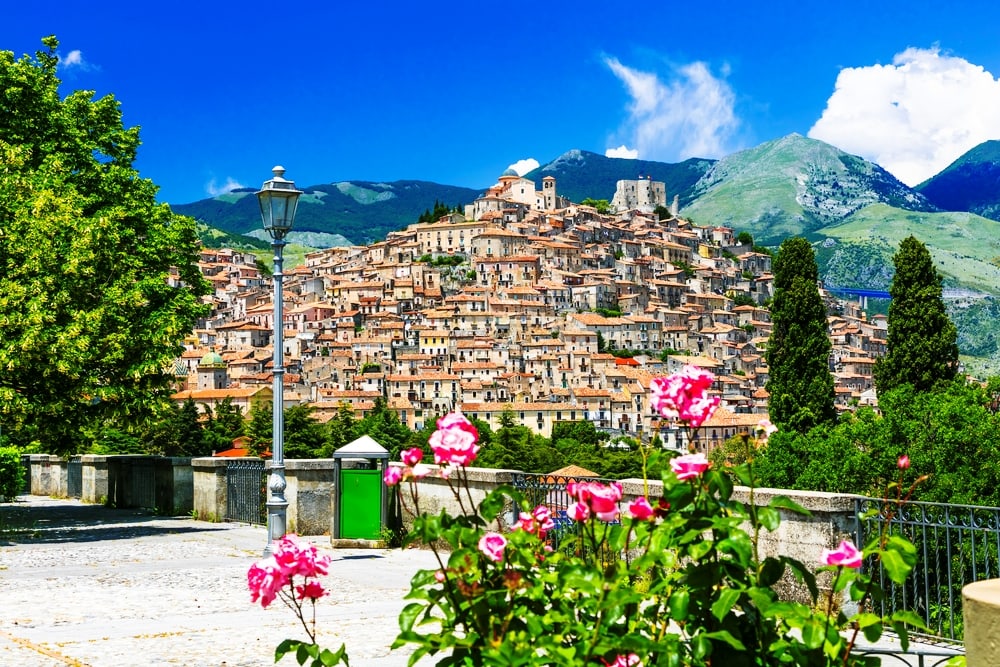
After a few false starts (also known as research), searching the internet, taking a few trips and discounting a few possible destinations such as the South of France (too expensive) and Crete (too far away for a quick visit), we finally settled on a new life in Italy.
Pros and cons of living in Italy a guide to living in Italy
- Pros and Cons of moving to Italy the ultimate guide
- The Dream of a Place in the Sun
- Pros and cons of living in Italy a guide to living in Italy
- The Cons of Owning a Property in Italy
- Italian Bureaucracy
- Learning Italian
- Making friends in the Italian Culture
- The Pros of Owning a Property in Italy
- Finding a Place to Live in Italy
- Food in Italy
- Understanding the Cost of Living
- Adapting to Our Italian Environment – making the move to Italy
- Healthcare in Italy how to navigate the Italian healthcare system
- How to Sign-Up for Italy’s Public Healthcare System
- Private healthcare in Italy
- What are the requirements for retiring in Italy?
- Getting a bank account in Italy
- How to obtain a residence permit in Italy
- Getting a Work Permit in Italy
- How to live in Italy as an American
- Digital Nomads visa requirements
- Understanding the tax implications of moving to Italy from the USA
- How to apply for an Italian permit to stay
- Living in Italy FAQS
Why live in Italy?
Although I’d travelled Italy in my youth, my wife had never been, but with extremely low flight costs (via Ryanair) at that time (about £1 plus tax) it was easy to go and explore the possibilities.
We’d made contact with a local estate agent through a friend of ours, who had previously bought a property in the same area and we soon found ourselves on a flight to Pescara Airport in Abruzzo (which at the time we had never heard of).
After stepping off the plane, it took my wife maybe 30 seconds to fall head over heels in love with Italy.
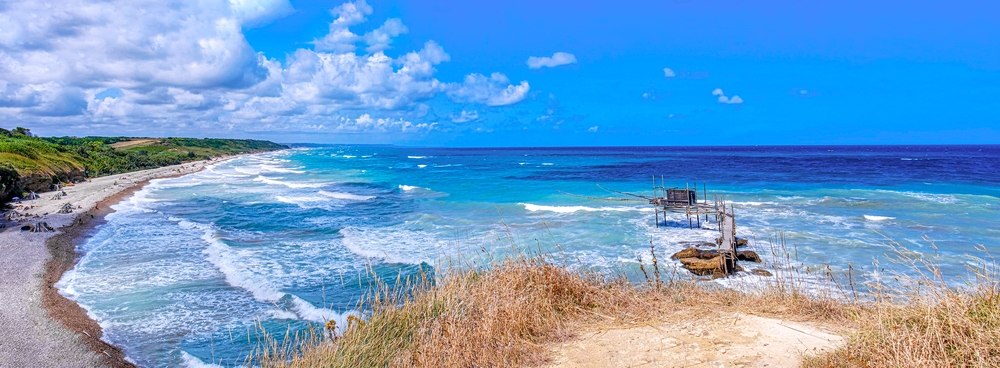
On that initial trip, we spent about three days in Abruzzo, looking at properties, and decided on a typical house centred in the historic centre of a small town, the house needed a lot of work, including re-wiring, a new bathroom and a new balcony (in its present state the roof terrace was a patch of leaky felt with a bit of chicken wire being the only thing to hold you back from a 40-foot drop).
The town itself was in a great location, easily accessible by road and rail, and featured a beautiful piazza and church. It was also in very close proximity to the national parks of Abruzzo.
We were informed, however, that hardly any English was spoken in the town, and our Italian at that time was none existent. It didn’t matter, we were hooked.
After some reflection, we put in an offer on the house (accepted) and returned a few weeks later in a rainy November to sign for the property.
After an hour or so in the solicitor’s office, with our estate agent, solicitor, translator and the current owners of the property it was all done. The family who had sold us their house then immediately invited us back to their home for lunch and some prosecco to celebrate our transaction.
My wife insisted we spend that first night at our new home, with no furniture and no heating, on a blowup airbed and sleeping bags – so we had no sleep and nearly froze to death – other than that it was a great day.
The Cons of Owning a Property in Italy
Of course, there are pros and cons of integrating into a new country and it is not always the Dolce Vita the TV shows would have you believe. These are the things which we found the most challenging as we started to slowly integrate into Italian life.
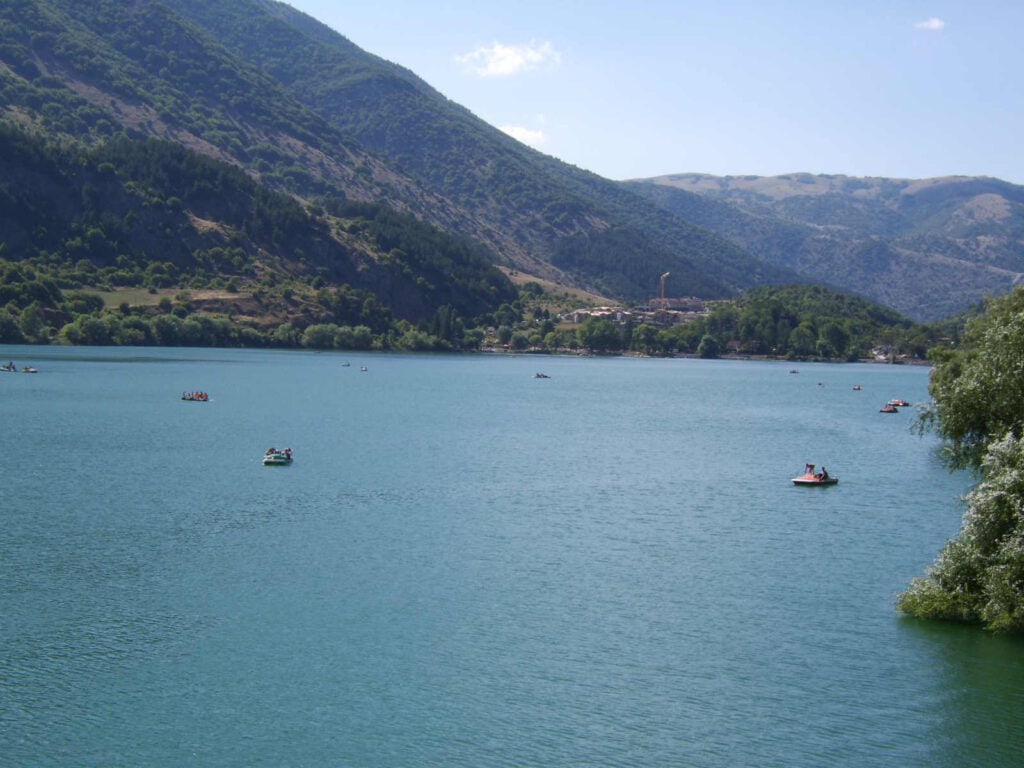
Italian Bureaucracy
We knew Italy had a reputation for being a bureaucratic bottleneck, and from our experience it’s true. We needed a lot of help in how to buy property in Italy. We spent about three days travelling around banks and utility offices, getting things photocopied and waiting in lines for the inevitable rubber stamps to appear. Thankfully we got that help from our estate agent, who basically held our hands while we set up bank accounts, gas, electric and water – switching everything onto direct debits. If you are considering moving to Italy and don’t speak the language you will definitely need help in this area, at least to set things up initially.
Once our utilities were set-up and the relevant authorities knew about us so we could pay local taxes, then you have just got the day-to-day bureaucratic issues that are part and parcel of being in Italy – this generally includes a far bit of queuing at banks, post offices etc. This is something we now accept, but obviously, we try to arrive at these bureaucratic hubs at the best times to visit (worked out through trial and error).
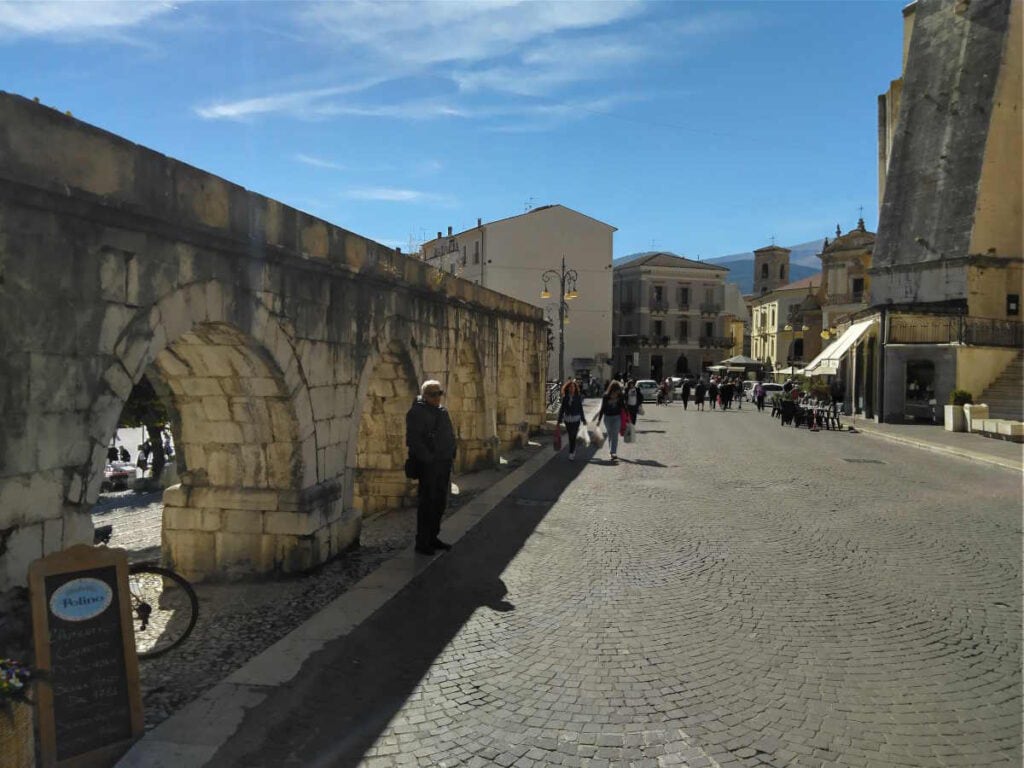
Learning Italian
Learning Italian can be relatively easy for English speakers, especially if they already have some knowledge of Romance languages like Spanish or French. The Italian language has a straightforward pronunciation system, a relatively simple grammar structure, and many words that are similar to their English counterparts.
There are also plenty of resources available for learning Italian, including online courses, language exchange programs, and immersion experiences in Italy.
Of course the bureaucratic issues mentioned were amplified initially by our complete incompetence in the Italian language. Although being informed that English was hardly spoken in our new town this proved to be not exactly correct.
As time passed and we spent more time in our Italian town and the locals got ‘used to us’, they often would start to practice a little English on us (most Italians do about 4 years of English at school, so they have the advantage as we had done zero years Italian in our English schools!). Just like we were nervous speaking Italian, our new Italian friends were nervous about speaking English to us, but slowly, slowly we started to understand each other (usually with the help of some local wine to break down any social awkwardness).
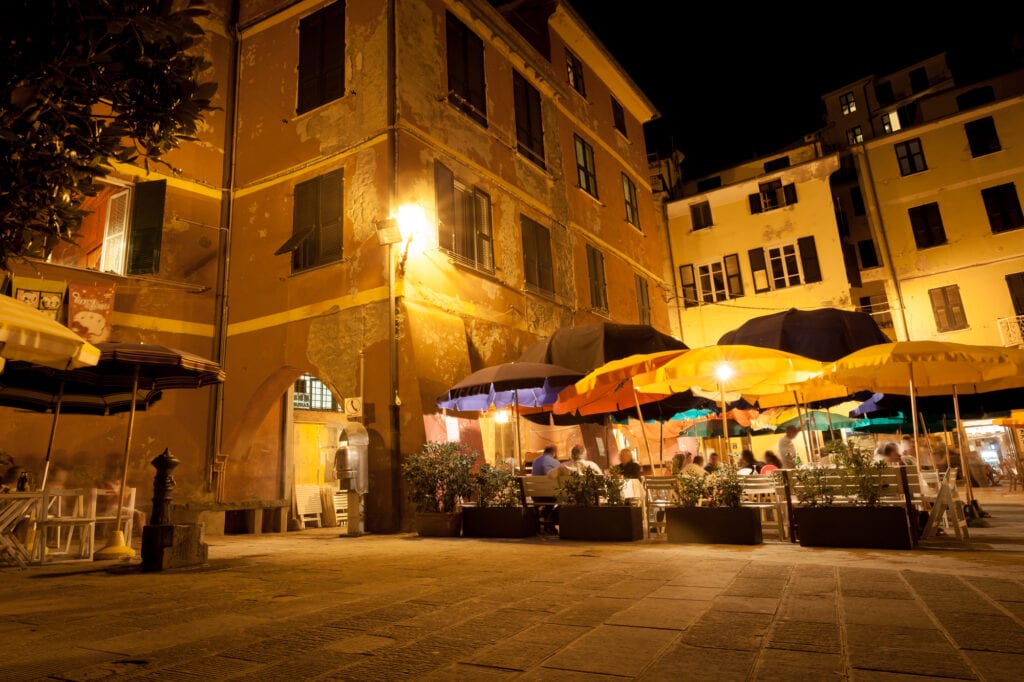
Making friends in the Italian Culture
Building relationships took time. From the start we wanted to make friends with the local Italians in our town rather than take the easier option of being absorbed into a clique of expats, not that there were many expats around us when we first came to Italy. We took this approach, as we didn’t want things to be as they were in our own country (the UK), we wanted something different and wanted to integrate locally. However, this proved easy to say but tougher to accomplish.
In retrospect, there were two reasons for this. Firstly, most of the locals we met were introduced to us by our first contact in the town (our estate agent), and from these initial interactions we ‘clicked’ with a few people (we meet up with them even now for coffee), but didn’t ‘click with most of the people we met.
Maybe because of the language barrier, maybe because of different values. The second reason it was difficult was that we were spending so little time in Italy in those first few years; a week or two here and a long weekend there, relationships never seemed to get the time to develop naturally. Strong relationships cannot be forced, they take time – we accepted that this was a long game.
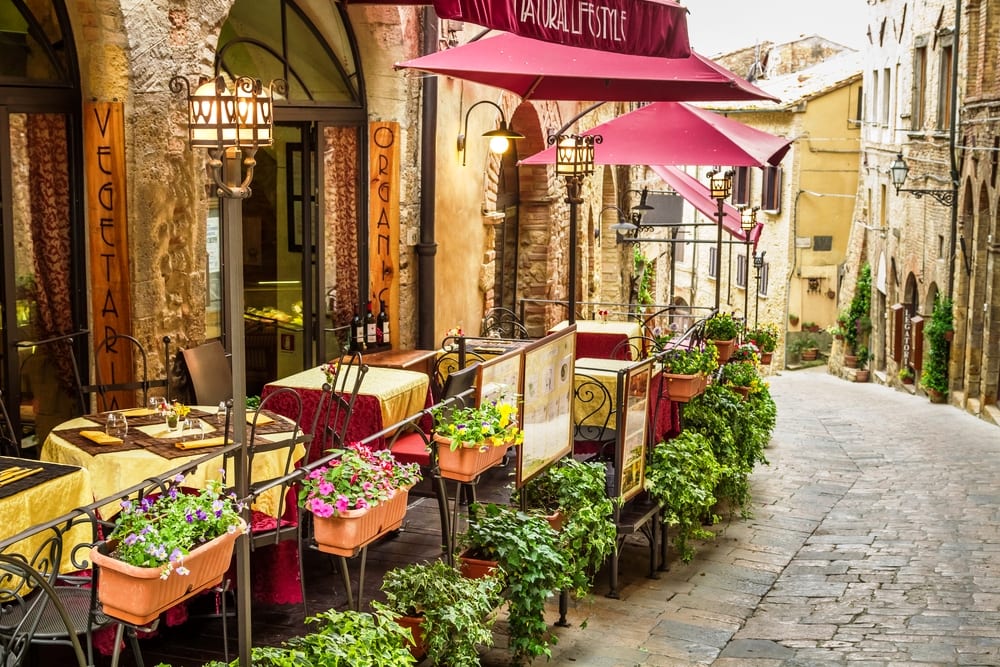
Property Problems
Our first property in Italy was an old house over three floors plus a cellar in the historical centre (centro storico) of our town. It was over a hundred years old and needed substantial work to make it comfortable for myself and my family. We used local tradesmen for all the work we had done to the house. Which included turning the cellar into a bathroom, re-wiring the entire property and renovating the roof terrace.
We had great guys do our work, the only problems we had was when we made quick, and not too well-thought-out decisions, because we could only spend a limited time in Italy and couldn’t oversee the work, the bathroom was an example of this, as due to personal circumstances I never got to speak directly to our builder before he commenced work, and we just left a message basically saying: please just change the cellar into a bathroom – kind of dumb at the time.
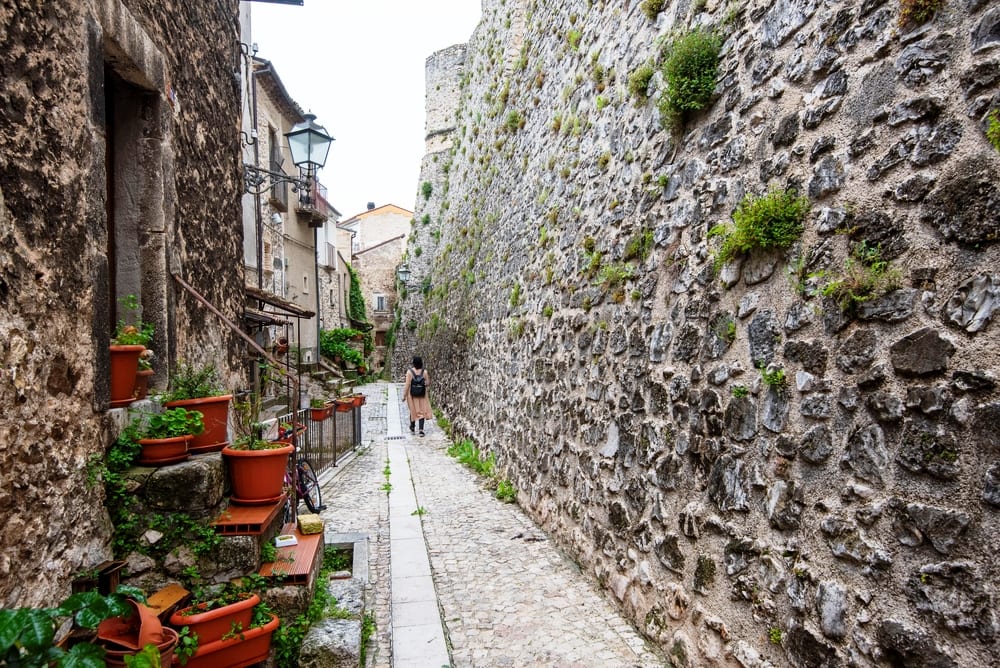
So it wasn’t a surprise when we returned a few months later to find a bathroom completely unlike we had imagined. We learned our lesson though, and when it came to the roof terrace I sat on the roof with the builder one sunny afternoon and we made some sketches together. It turned out exactly as we wanted it. I did the same thing when it came to re-wiring with the electrician – they had no English, and I had about as much Italian as needed to order a coffee, but it somehow worked out okay.
After all the main work was done, my wife, eight-year-old daughter and I spent a week painting the house and assembling furniture (bought from the local Ikea), but there were still issues. It was an old house in an old part of town.
Every time we returned there seemed to be another small, but irritating issue, during the winter a large damp patch had appeared on one of the walls (after some investigating the culprit was found to be the derelict property next door – we tried to track down the owners, who now lived in France, and even had a solicitor send them a letter, but it was never resolved).
Another time lumps of plaster had fallen from the ceiling. These are the issues with old houses. After a couple of years of almost constant work on our house, we decided to switch tack and bought a more modern apartment in the same town – which would could lock up on leaving in the safe knowledge that on our return there would be no major issues to deal with. We wanted to start enjoying our holiday time in Abruzzo, rather than working a lot of the time.
The Pros of Owning a Property in Italy
You’ll notice that that some of the things that crop up as cons of owning a house in Italy also appear as pros in the list below, because as we all know there are two sides to every story…
Community
One of the most obviously great things about buying a property in a small Italian town was the immediate sense of ‘community’. Growing up in the UK in the 60s, I remember all my relatives; aunts, uncles and cousins all living close by and the sense of community and support that engendered.
Integrating into a small Italian town brought that feeling back, it was like going back in time, almost like going back to being a kid again. Now our new ‘adopted’ Italian aunts and uncles could be found sitting contently outside their front doors in small groups in the evenings, or chatting in the piazzas.
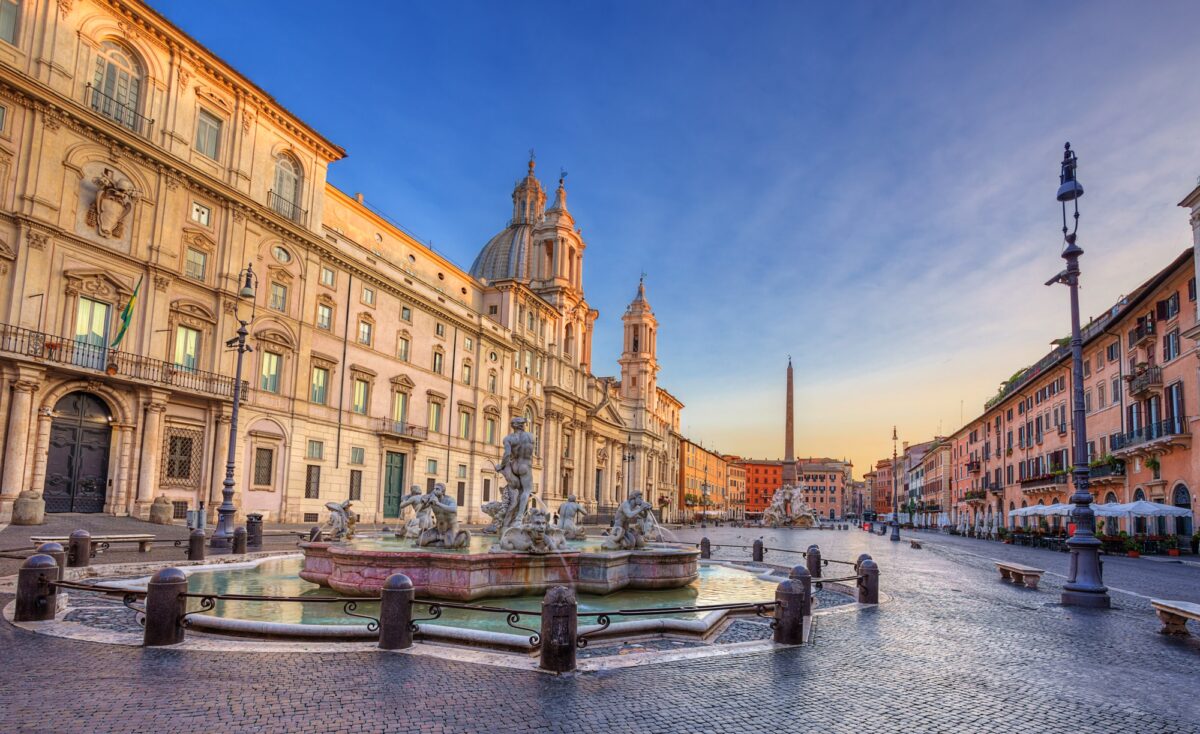
Friends
Relationships, as mentioned earlier, took some time to grow, but grow they did. We have found most Italians are friendly and curious by nature. So little by little we’d start a small conversation in a café or at the shops, and some of these early interactions, developed into long-term, strong friendships (in spite of the language barrier which still, of course, causes confusion). Now our social life is pretty busy in Italy, joining friends for dinner, coffee, parties, hiking, excursions and even going on holiday together.
Language
Learning another language is not easy. It used to be for me when I was young, I would pick up languages pretty quickly. Not so now.
We can get by in Italian, all the day-to-day stuff now is pretty easy, but I would say that my Italian is still pretty abysmal – but we get by and we even know a few phrases in the widely spoken local dialect (yes, many regions of Italy speak in dialect, which adds more than confusion when you are learning to speak ‘Italian’ the BBC way). We used, and still use, a combination of methods to learn Italian, audio, books and, of course, speaking with our Italian friends.

Culture
The culture of Italy means different things to different people and differs widely depending on which part of Italy you are in. For us the culture of Italy is all about the people – we have found most Italians to be warm, friendly and with a similar sense of humour to that of the British.
In our town, they have the same problems and worries as anyone else in the world, but it all seems to be handled with a cool grace, except when it comes to driving which adheres to different rules (for example an Italian driver may wait patiently in line while the driver in front has relaxed conversation with a pedestrian friend in the middle of a road, but don’t hesitate when traffic lights flick from red to green at junction or you might immediately be assaulted with a chorus of angry car horns – these are the paradoxes of Italy).
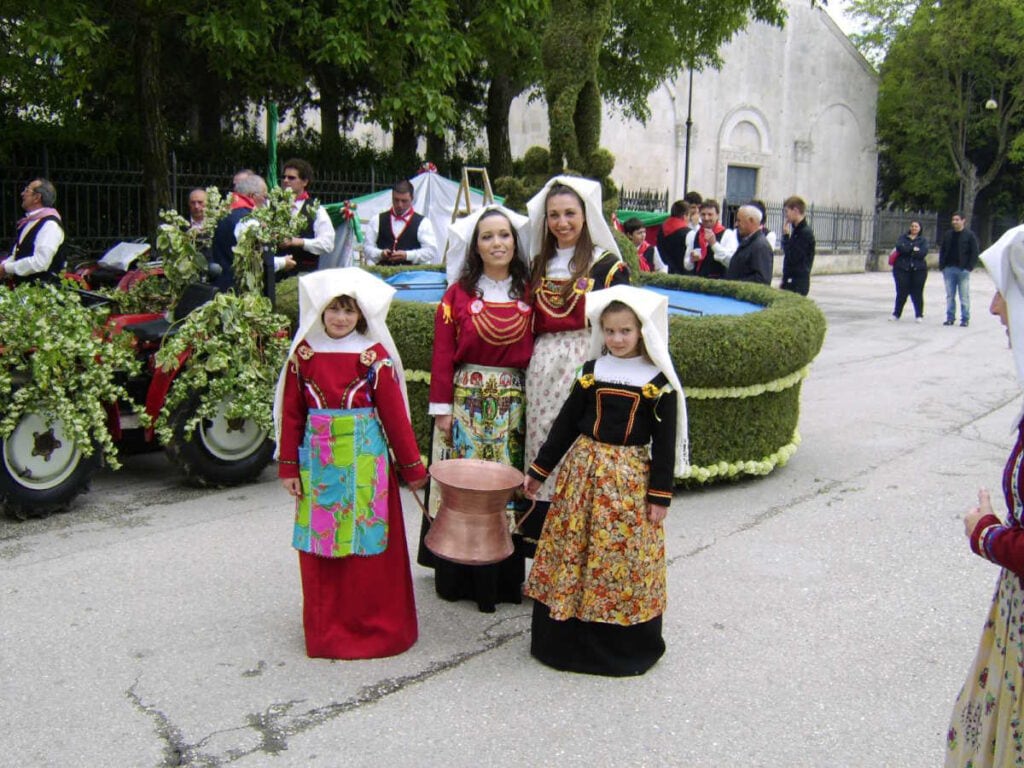
One cultural phenomenon we are particularly fond of is the ritual of passeggiata, where the locals take a leisurely pre-dinner stroll up and down the main street of our town with no obvious goal in mind except to get some fresh air and say hello to friends and acquaintances.
Another of the wonderful things about Italians in general, is that they like a party, so in the summer months you will find literally hundreds of festivals taking place in towns and villages all over Italy. Many of these festivals are themed around religious events like Semana Santa (Easter) and that other Italian passion, food. We have had the pleasure of attending many festivals in the Abruzzo region over the years – and they have always been entertaining and had great food.
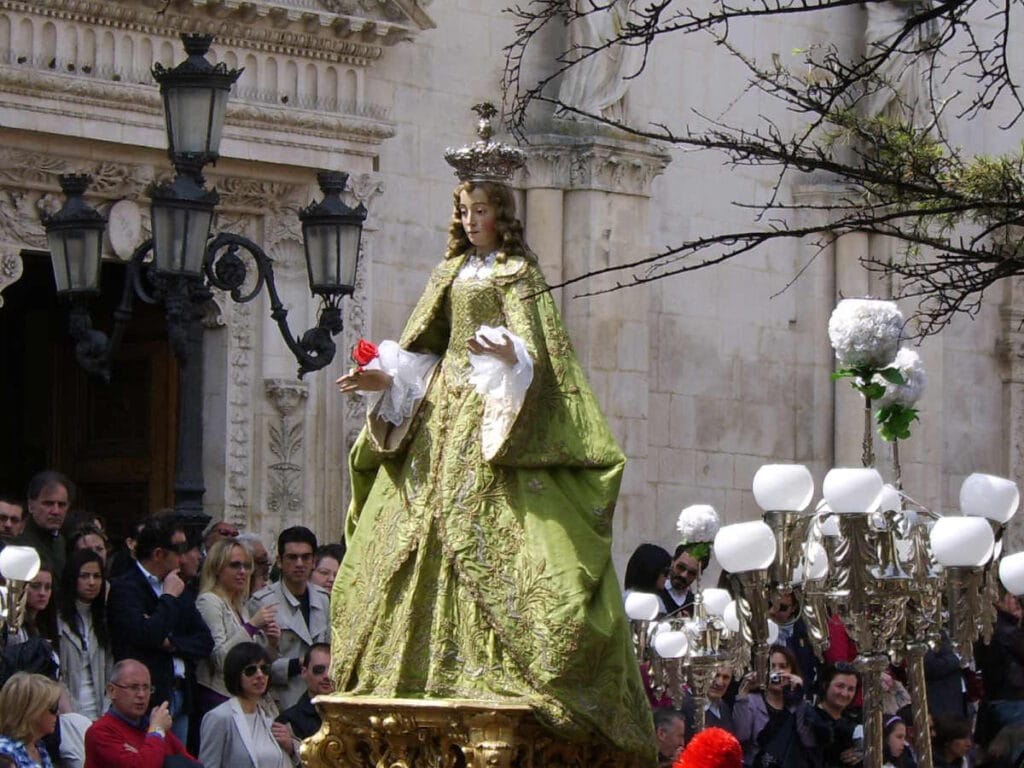
Finding a Place to Live in Italy
Looking for a place to live in Italy can be affordable, but in comparison to other expenses and incomes, it can be expensive. New residents can seek help from real estate agents to find rental accommodations, or look in English language newspapers, expat forums, and property windows or community bulletin boards.
Italian leases are much longer than usual, with a “transitory” lease lasting up to 18 months and a standard lease lasting a minimum of three years, sometimes even four.
Breaking a lease can be costly and challenging, so many expats choose to rent a spare bedroom from another expat for 6 to 12 months to figure out where they want to live and what type of accommodations they want for the long term.
Food in Italy
Italy is a haven for foodies and lovers of food. With its rich culinary tradition and regional diversity, there is no shortage of delectable dishes to tantalize your taste buds. From the savory pasta dishes of the north to the fresh seafood of the coastal regions.
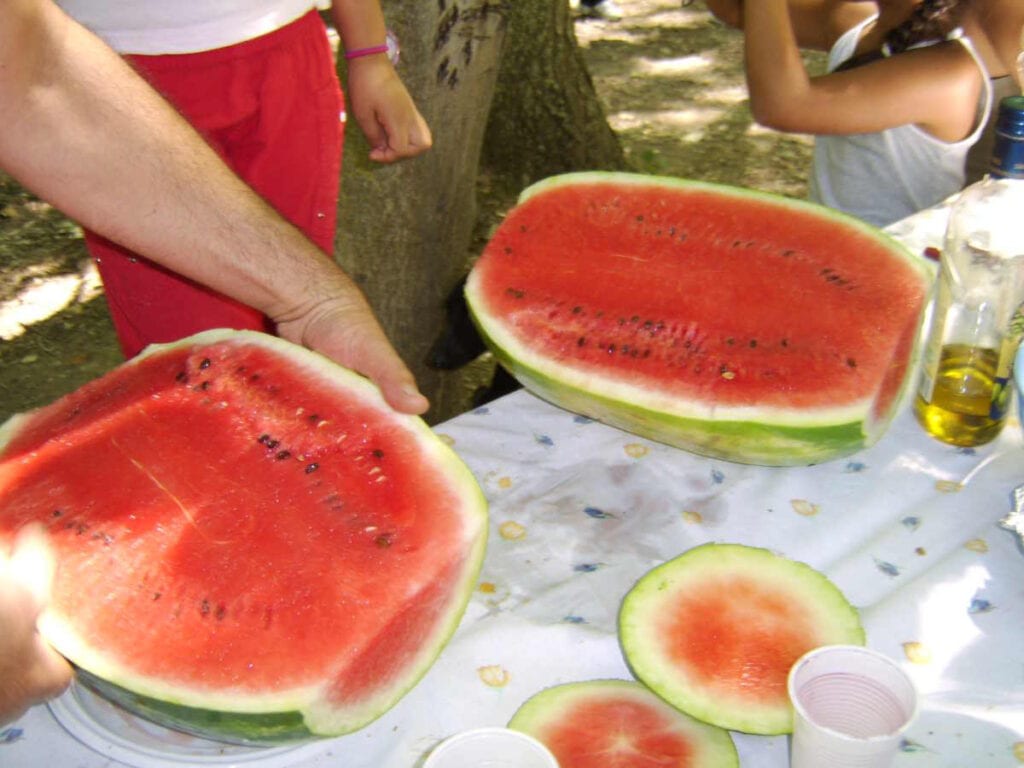
Italy offers a mouthwatering array of flavors and ingredients. Indulge in a traditional Neapolitan pizza in Naples, savor the creamy gelato in Florence, try Rome’s Cacio Pepe or feast on the hearty Tuscan cuisine in the rolling hills of Tuscany.

The Italian people take great pride in their food and the quality of their ingredients, making dining in Italy a truly unforgettable experience. Whether you are exploring the bustling markets of Rome, dining in a family-run trattoria, or partaking in a cooking class in a charming countryside villa, Italy has something to satisfy every food lover’s craving. With an endless array of delicious options to explore, Italy is a must-visit destination for anyone passionate about food.
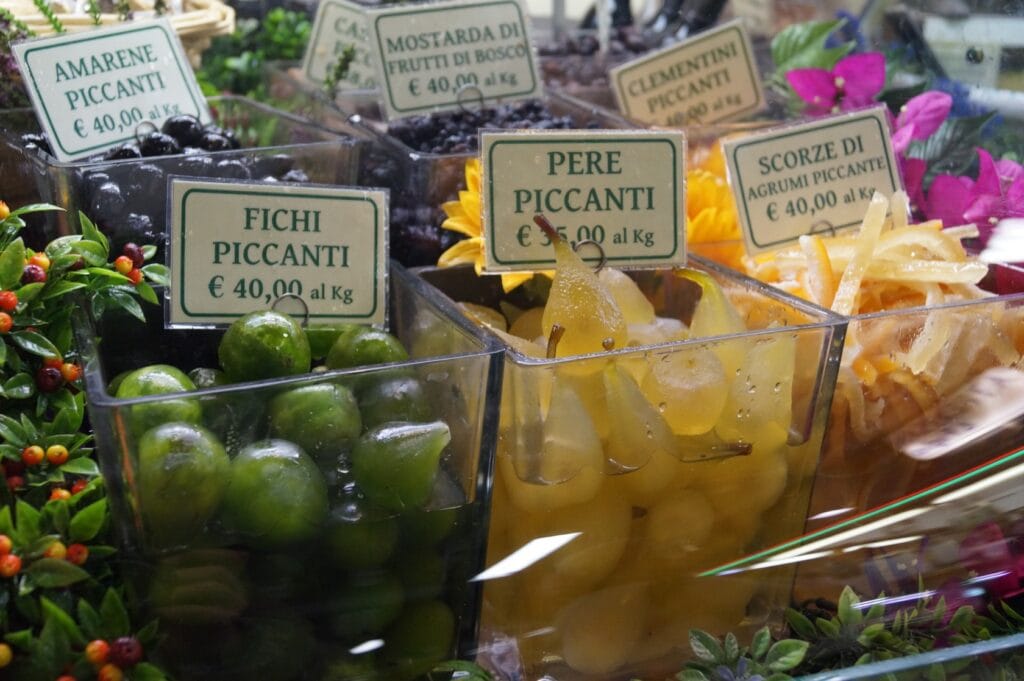
Understanding the Cost of Living
When it comes to the cost of living in Italy, there is good news and bad news. On the plus side, a single person’s annual expenses (excluding rent) could amount to less than 10,000 Euros if they’re frugal. There are affordable accommodations in all large cities, including Rome. It’s easy to live without a car in Italy and public transportation is inexpensive.
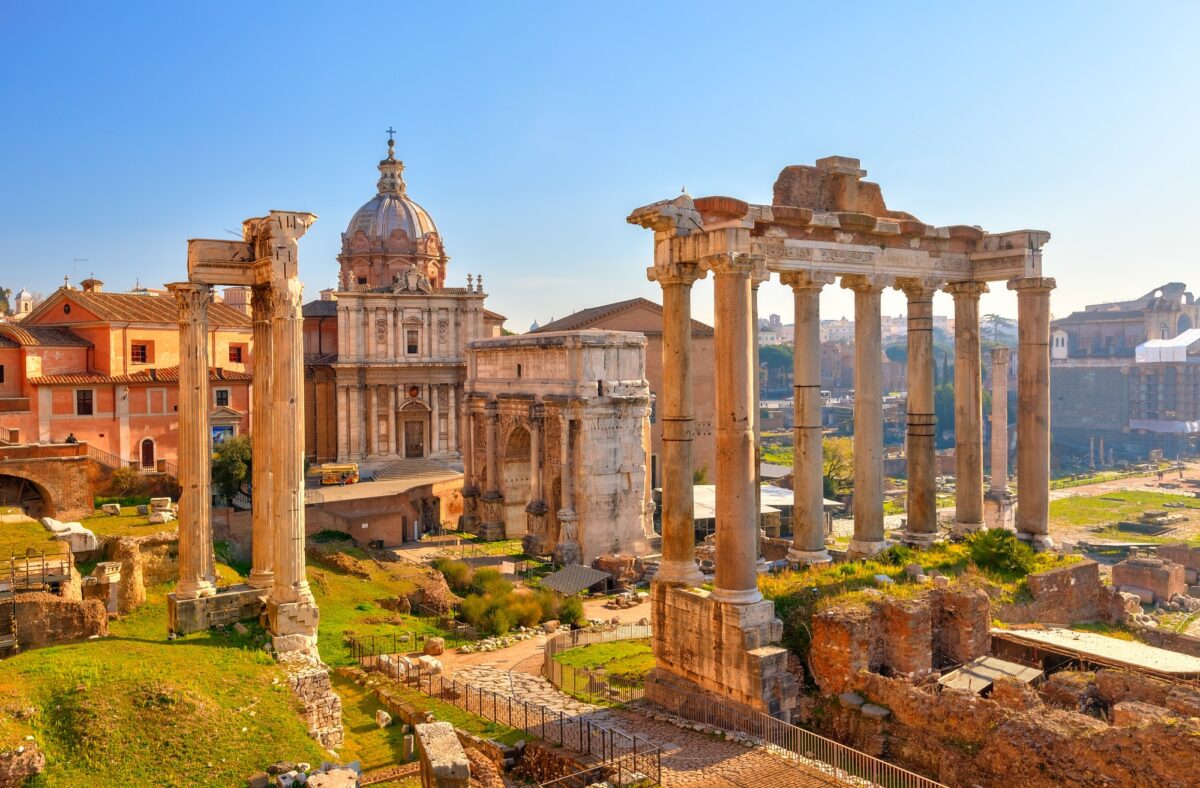
The cost of living will vary massively depending on where you decide to settle down. For example, larger, busier cities like Rome and Milan will have a much higher cost of living.
The cost of living will fluctuate significantly depending on the location you choose to establish yourself. For instance, metropolitan areas such as Rome, Florence and Milan will incur a considerably greater cost of living as will living on the Amalfi Coast or Tuscany unless you choose very rural areas.
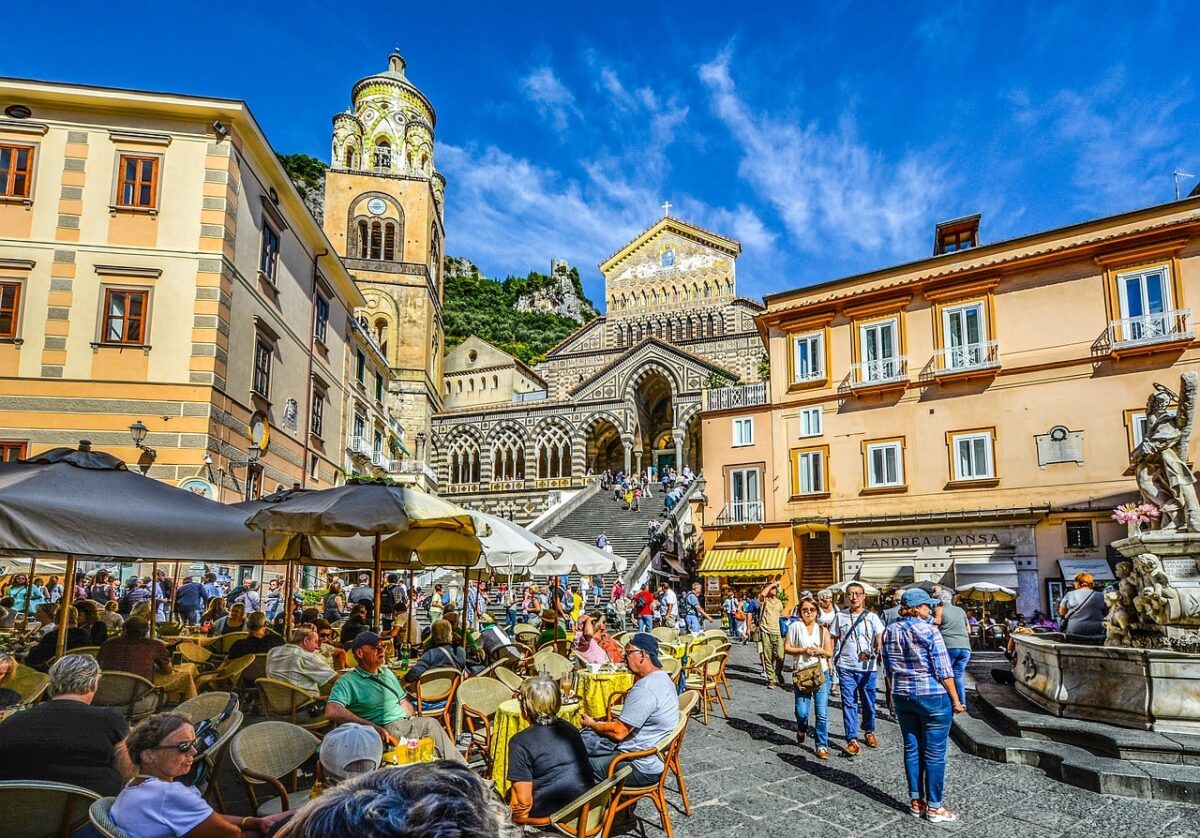
Additionally, it’s easy to live well, very well, for very little in Italy. Some of the world’s finest espresso, pastries, pasta, cheese, cured meats, olive oil, and wine are available at a very low price. Vacations to the mountains or ocean are affordable. As well, every community large and small is filled with beautiful public art and architecture.
On the downside, Italian taxes are very high. As such, Italy is often considered one of the most expensive countries in the European Union. After paying taxes and rent, many expats and international citizens feel that not much of their salary is left.

Here’s what you can expect to pay, on average, for some common items:
A simple lunchtime meal: 15 Euros
Dinner for two at a mid-range restaurant with three courses: 50 Euros
Cappuccino: 1-2 Euros
Bottle of mid-range wine: 5 Euros
A kilogram of apples: 2 Euros
A kilogram of local cheese: 13 Euros
A dozen eggs: 3 Euros
Adapting to Our Italian Environment – making the move to Italy
Adapting to our new Italian locale required patience. It takes a long time to understand even the simplest of concepts when both the culture and the language are so foreign. In the small Italian towns, life proceeds at a slower pace, if you don’t fall into step with that pace you are heading for’ frustration central’. We fell into step. Life can be stressful enough.
One of the things we had to get used to was waiting in queues for just about everything (banks, post offices or anything with an office). Italian bureaucracy moves at a snail’s pace, and from an outsider’s point of view seems over-encumbered with many rules and regulations which seem, on the face of it, unnecessary or make little sense.
But when in Rome (or anywhere else in Italy) – you can’t fight the system. At first, we thought it was just our viewpoint regarding Italian bureaucracy, but it soon became apparent many of our Italian friends felt the same way. Our advice is if you have any official business of any kind in Italy, take a book with you – preferably a long one.
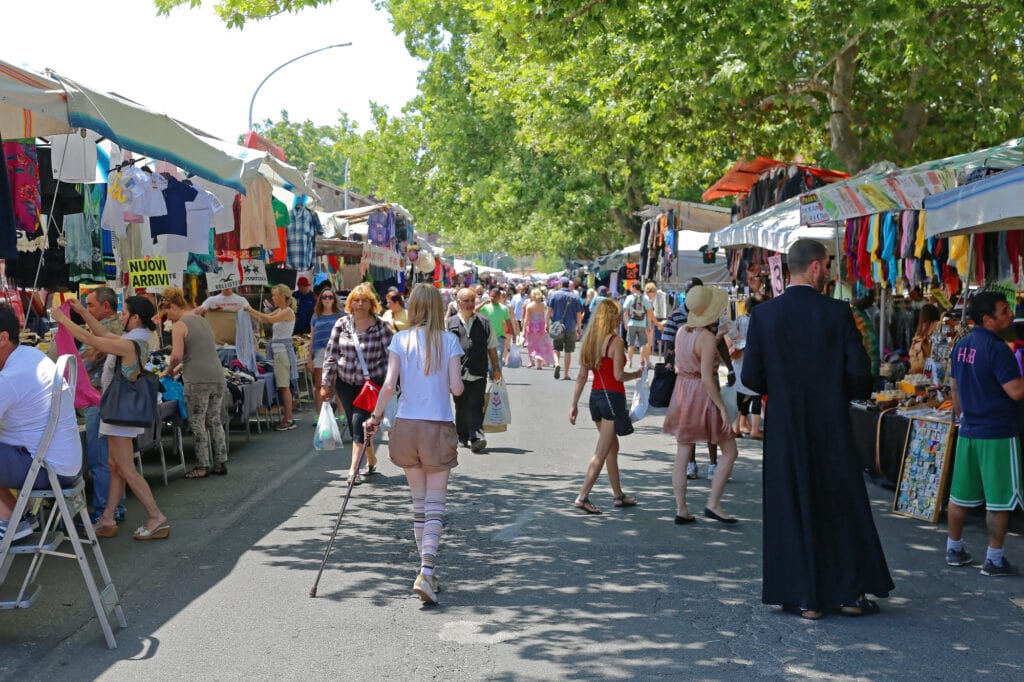
This slowness of pace does, however, have many advantages – one of which is slow, relaxed meals (in good company), with great wine and fantastic, simple food that tastes fantastic. A long, slow Italian dinner including penne arrabbiata and local cheeses, with friends is one of our greatest pleasures. It is hardly surprising that the ‘slow food’ movement was born in Italy.
This slowness of pace continues throughout the Italian day (at least in the smaller towns), when all the shops and bars close their doors around lunchtime and don’t open again until about 4ish. This took a bit of getting used to, as, if we were off exploring the hills and towns around Abruzzo, we had to ‘time’ grabbing a sandwich or coffee knowing that the afternoons would be ghost towns.
Slow, doesn’t always mean quiet.
Bars can often be very noisy between the clank of coffee cups, enthusiastic chatter and the various noises of the coffee machines that sound like a steam engine on steroids. In the larger towns, there is the ever present whine of motor scooters, which I think we mostly ignore now, but I can’t wait for the day when they are all electric.
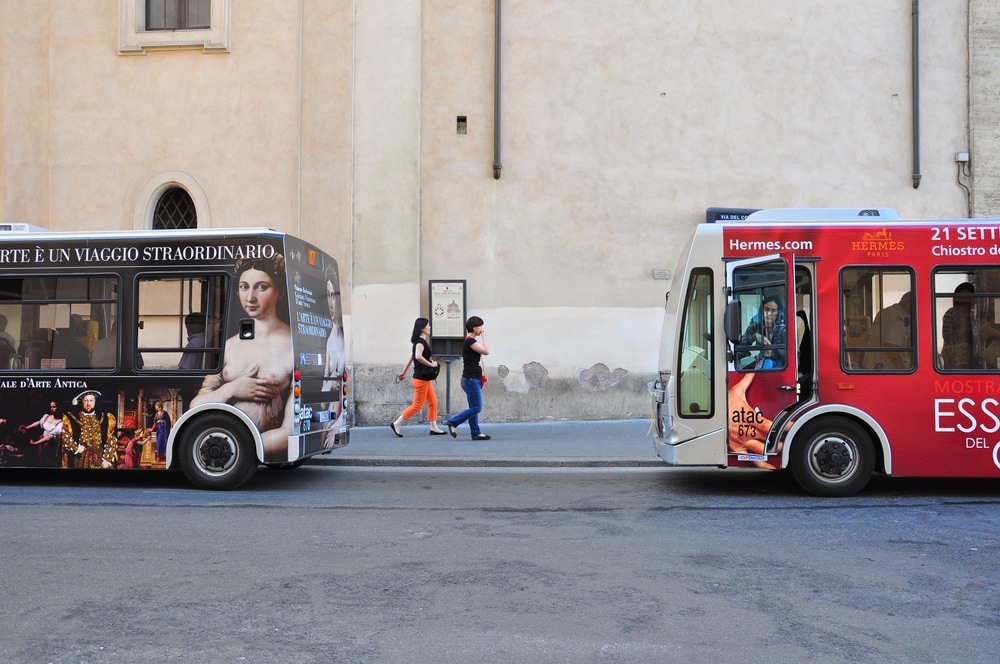
Healthcare in Italy how to navigate the Italian healthcare system
Our interactions so far with the Italian health services have been (thankfully) rare, but on the occasion we have needed a doctor it hasn’t been a problem to get an appointment (just more queuing) and often for smaller things (for example when my wife inadvertently crushed my fingers in a car door), the local pharmacist can help. He did a great job on patching up my hand, and even offered to my wife some hair restorer for my head so she didn’t have to put up with husband with a bald head! – Oh, how we love that Italian sense of humour.
How to Sign-Up for Italy’s Public Healthcare System
In order to qualify for public healthcare in Italy, the first step is to enroll with the SSN, which can be done at your local Azienda Sanitaria Locale (ASL) office.
At the ASL office, you can complete the following procedures:
Signing up for the Italian National Healthcare Service
Getting a Tessera Sanitaria
Selecting a public primary care doctor (medico di base)
Choosing a pediatrician for your children, if needed
Requesting sick leave or home healthcare, and more.
Registering with the SSN and Obtaining a Tessera Sanitaria
When you first sign up with the SSN, you will be issued your Tessera Sanitaria. There are two types of sign-ups, one that is mandatory for most residents, workers, and family members, and another that is voluntary for visitors such as students, au pairs, and religious staff.
Your first step is to visit the ASL to determine the specific requirements for your situation and to receive guidance on completing the application form. This form, known as the Bollettino Postale, can be obtained, filled out, and paid for at the Post Office, where you will receive a receipt.
Required Documents to sign up for public Healthcare
Then you must present both the form and the receipt at your ASL along with the following documents:
passport;
your tax code (Codice Fiscale);
residence permit (or proof you have requested one, such as the receipt);
self-declaration of address (which must match the residence permit);
receipt of payment of the registration with the SSN.
The health card is then sent to your home address. In the meantime, hold on to a copy of the receipt.
Your health card is valid as long as you have permission to stay in the country. If you renew your residence permit, make sure you renew your Tessera Sanitaria as well. This is done at the ASL, with:
passport;
proof that you have requested the renewal of your residence permit;
your tax code;
certificate or self-declaration of residence.
Once you are properly registered with the SSN and have your Tessera Sanitaria, you will be asked to register with a family doctor.
Private healthcare in Italy
Non-EU expats will need to have private health insurance valid for their expected time of stay or formally register for the SSN. Private health care gives you access to specialists quickly and you can choose your GP.
What are the requirements for retiring in Italy?
So, if you’re thinking of retiring in Italy, you must obtain an Italian elective residency visa. It’s also known as an Italian retirement visa or just an elective residence visa, and you can get it from the Italian consulate. But once you’re in Italy, you can’t work this Visa is only for the retired.
In order to get this visa there are certain requirements to snag this visa. For one, you need to show that you’ve got at least €31,000 in annual income, from savings or a pension. If you’re married, that income requirement goes up to €38,000. And if you’ve got kids, that requirement goes up even more. On top of that, you must have a place to live in Italy, a valid passport, and documents like marriage and birth certificates.
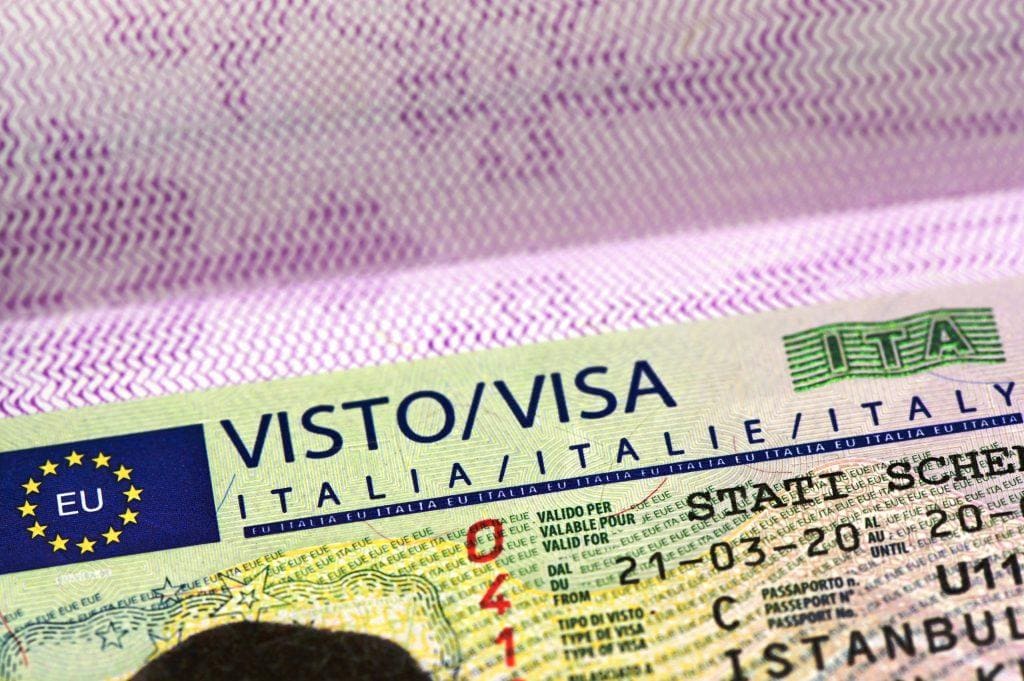
Getting a bank account in Italy
Despite the difference in the types of bank accounts that are available to residents and non-residents, the requirements for opening a bank account in Italy are the same for both categories.
In order to open a bank account in Italy as an expat resident, you’ve to present:
A valid identification document (passport or identity card)
Your codice fiscale
Proof of address
Proof of employment/ enrollment in an Italian education institution or a residence permit
How to obtain a residence permit in Italy
EU citizens are not required to obtain an Italian visa due to regulations aimed at promoting the unrestricted movement of people within the European Union. The requirement for a residence permit was abolished in 2007, and now, within three months of entering the country, EU citizens only need to register with the local registry office in their place of residence. For stays of less than three months, no formal registration is necessary.
Getting a Work Permit in Italy
The Italian Work Visa allows non-EU citizens to access the Italian territory to carry out work activities. To legally reside and work in Italy, it is necessary to apply for both the Work Visa and the Italian Residence Permit.
How to live in Italy as an American
So, you’re thinking about moving to Italy as an American? Well, first things first, you’ll need to figure out what type of visa you’ll need to live there. Depending on your situation, you might need a student visa, work visa, or even a spousal visa if you’re married to an Italian citizen.
It does have its quirks, just like any other country. For example, the bureaucratic process can be a bit of a headache at times, so make sure you have all your documents in order and be prepared to wait in line. Also, the cost of living can be pretty high in certain areas, so be sure to do some research on where you want to settle down.
And speaking of settling down, it’s important to remember that the pace of life in Italy is a little more laidback than what you might be used to in the States. So, take some time to adjust and embrace the “dolce far niente” lifestyle. It’s all about enjoying the little things in life, like a leisurely lunch with a glass of wine or a stroll through the cobblestone streets. Overall, living in Italy as an American can be a truly enriching experience, but it’s important to be prepared for some cultural differences and to keep an open mind.

Digital Nomads visa requirements
The digital nomad visa for Italy is not currently accepting applications, but it will be open to non-EU citizens who are skilled professionals or are employed by companies outside Italy. Applicants must also have valid health insurance and comply with Italian regulations, including taxes and social insurance contributions.
The Italian government plans to release further decrees to provide more information on the program, including income requirements, qualifications for being “highly skilled,” definitions of digital nomad work (ie self-employment visa), visa costs, extension procedures, and tax, health insurance, and social security requirements.
Understanding the tax implications of moving to Italy from the USA
Americans moving to Italy should be aware of the tax implications of living abroad. As a U.S. citizen, you are still required to report your worldwide income to the IRS, regardless of whether you live in Italy. However, Italy has a tax treaty with the United States, which helps to prevent double taxation on the same income.
The Italian tax system is based on residency, so if you live in Italy for 183 days or more in a calendar year, you are considered a tax resident and will be subject to Italian income tax on your worldwide income.
It is important to consult with a tax professional to understand the specific tax laws and regulations in both the U.S. and Italy. Additionally, Americans moving to Italy should be aware of potential estate and gift tax implications, as well as any foreign bank account reporting requirements. Understanding and planning for these tax implications is crucial for a smooth transition to living in Italy.
How to apply for an Italian permit to stay
The residence permit has recently transitioned into a digital format and is now issued as an electronic document. In addition, the application process for the permit has also gone digital.
This has been made possible through a collaboration between the Ministry of the Interior and Poste Italiane (the Italian Post Office). As a result, individuals applying for new or renewed residence permits for non-EU citizens are required to submit their applications at designated post offices using a specialized yellow-labeled kit. These kits can also be obtained at Patronati (Italian advisory service offices) and municipal offices.
If you’re thinking about moving to Italy, the good news is that it’s not too expensive to live there and the healthcare is top-notch. Plus, you’ll get to enjoy fresh and healthy food, great schools, good public transportation, beautiful views, and a rich history and culture. In smaller towns and the countryside, you can find cheaper housing options.
Getting around is pretty affordable with public transport, but having a car can be pricey because of gas and maintenance costs. And when it comes to groceries, you can find lots of fresh and good quality stuff at decent prices in local markets and supermarkets.
Italy is home to a multitude of historical sites and artistic treasures, ranging from ancient Roman ruins to Renaissance masterpieces, all of which are sure to leave you in awe. Additionally, the Italian way of life is renowned for its focus on savoring life’s pleasures, including delectable cuisine, exquisite wine, and relaxed gatherings with loved ones.
Living in Italy FAQS
Q: What is the cost of living in Italy?
A: The cost of living in Italy varies depending on the region, but generally, it is lower compared to other European countries. However, major cities like Rome and Milan can be more expensive.
Q: What are the pros of living in Italy?
A: Italy is a beautiful country with a rich culture, delicious food, and stunning landscapes. It offers a relaxed lifestyle, great weather, and easy access to travel within Europe.
Q: Are there language barriers when moving to Italy?
A: While Italian is the official language, many Italians in urban areas speak English. However, learning basic Italian can make daily life easier, especially in smaller towns.
Q: How can I buy property in Italy as an expat?
A: As an expat, you can buy property in Italy without being a citizen. It’s advisable to hire a professional real estate agent and a legal advisor to guide you through the process.
Q: What are the best places to live in Italy?
A: Major cities like Rome, Milan, and Florence are popular choices, as well as regions in Northern Italy such as Tuscany and Emilia-Romagna. Southern Italian regions like Puglia and Sicily also offer a great lifestyle.
Q: Is public transport easily accessible in Italy?
A: Yes, Italy has an extensive and efficient public transport system, including trains, buses, trams, and metros, making it easy to travel within cities and to other regions.
Q: What should I consider when moving to Italy as an expat?
A: You should consider the Italian lifestyle, work opportunities, visa requirements, healthcare, and the process of integrating into Italian society when moving to Italy as an expat.
Q: Can expats work in Italy?
A: Yes, expats can work in Italy, but they may need to secure a work visa and residence permit to do so legally. The job market can be competitive, especially in major cities.
Q: What are the major cities in Italy to consider living in?
A: Major cities like Rome, Milan, Florence, Venice, and Naples offer diverse living experiences, from historical charm to modern amenities, making them popular choices for expats.
Q: Is Italy a good country to live in as an expat?
A: Italy is a great place to live as an expat, offering a high quality of life, beautiful surroundings, rich cultural experiences, and a welcoming atmosphere for those looking to make it their new home.
